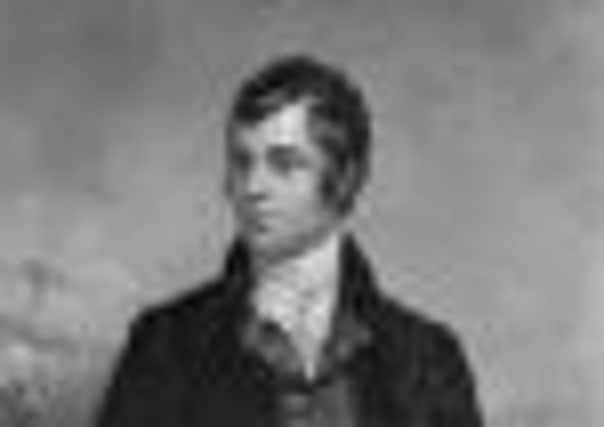Susan Dalgety: The rights of women merit urgent attention


In 1792, the Bard wrote: While Europe’s eye is fix’d on mighty things, The fate of Empires and the fall of Kings; While quacks of State must each produce his plan, And even children lisp the Rights of Man; Amid this mighty fuss just let me mention, The Rights of Woman merit some attention.
Sadly, not much has changed in changed in the ensuing 221 years, and the rights of women are still largely ignored. So much so, that when a recent opinion poll showed the overwhelming majority of woman are against independence, most commentators chose to ignore it, preferring to focus on the views of the Facebook generation.
Advertisement
Hide AdAdvertisement
Hide AdYet, as all the evidence suggests that women are more likely to vote than men, you would think that both sides of the constitutional debate would be frantically wooing female voters. You would be wrong.
The Yes Scotland campaign launch was dominated by middle-aged white blokes, some of them even flown in from the United States, in a seeming attempt to underline that politics was best left to men.
A quick trawl through the Better Together campaign website throws up a range of male voices – from Sir Alex Ferguson’s growl to the more emollient tones of Alistair Darling. About a dozen blokes argue the case for the Union, but only three women – and one of them is an anonymous “Mary from Glasgow”.
Much more worrying than the tone of the Better Together website, however, is the lack of debate about women’s representation in Scottish politics among the political parties – on both sides of the constitutional divide. There may be a group of independent-minded women arguing for a written constitution that has equality at its heart, but the SNP remains stubbornly male, despite what Nicola Sturgeon’s high profile might suggest.
In its 2011 landslide, the SNP returned only 18 women out of 69 MSPs (26 per cent).In eight years of coalition government at Holyrood, the Liberal Democrats had no female ministers. Even Scottish Labour, long regarded as a “class apart” on women’s representation, finds it hard to balance its ambition to achieve gender equality with meeting the demands of – what a former adviser describes as – its “vested interests”. Only last month, the party decided to exempt its sitting MSPs elected on the party list top-up system – more than half its Holyrood group – from its new gender-balance rules.
The depressing fact of life is that Scottish politics, of all hues and at all levels, is still dominated by men. Only a quarter of councillors are women, and we have only one female MEP. Only 13 of the 59 Scottish MPs in Westminster are women and while Holyrood can boast that more than a third of MSPs are women (34 per cent), this is in large part thanks to the legacy of Scottish Labour’s 50-50 representation campaign of 1999, a legacy that weakens with each successive election.
But it doesn’t need to be like this. Scotland once led the way in the political empowerment of women – it can do so again. Recently, two leading gender experts, Meryl Kenny and Fiona Mackay, argued in their Genderpol blog that the run-up to the 2014 referendum “provides a key opportunity for revisiting the debates over women’s representation in Scottish politics”. And in her Scotsman column last week, the redoubtable Lesley Riddoch argued that there should be legislation “to put women at the heart of Scottish public life – for 2014 and beyond”.
They are right. The challenge, however, is how to have a constructive, and inclusive, national conversation about women’s representation amid the febrile atmosphere of the increasingly polarised referendum campaign.
Advertisement
Hide AdAdvertisement
Hide AdThere are glimmers of hope. At a seminar on gender equality held by the Scottish Constitutional Futures Forum recently, participants from across the political divide agreed that there needed to be progress, regardless of the outcome of the referendum.
A starting point must be to make demands on all political parties. The Devo Plus campaign, which wants Holyrood to be handed full tax powers, has just asked the anti-independence parties to spell out their plans for Scotland should the electorate vote No next year.
Gender equality campaigners – whatever their personal stance on independence – should come together to call on Scotland’s political parties to set out their plans for achieving gender equality. Is the SNP considering measures to achieve gender equality to be included in the written constitution they propose in the event of independence?
Will Labour’s devolution commission consider mandatory quotas for Holyrood and local government elections, so that 50-50 becomes the norm, not remain the one-off bonus of the first wave of devolution?
The Lib Dems are backing Home Rule for Scotland, where Holyrood gets greater autonomy over tax and welfare, but is that Home Rule by men only? Have the Scottish Conservatives really changed under the leadership of a young woman, and are they ready to consider equality measures for the first time in their history?
And both referendum campaigns, Yes Scotland and Better Together, need to be as mindful of the women’s vote as they are of people under 30 and men. How women vote at the referendum is likely to decides its outcome. It will be women who decide whether Scotland stays within the UK family, as Sir Alex described it recently, or goes it alone as an independent nation.
But if the existing political culture remains unchallenged, and no mandatory equality measures are introduced, then women may vote, but it will be the men who will continue to call the shots.
• Susan Dalgety is a senior associate at the Active Learning Centre, a gender and human rights non-governmental prganisation. She was press adviser to former first minister Jack McConnell